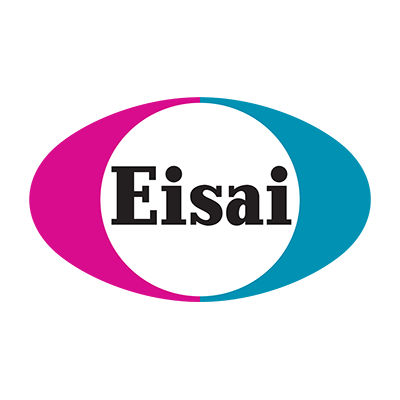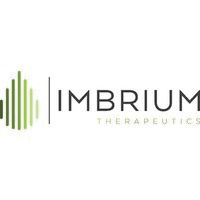预约演示
更新于:2025-05-07

Purdue Pharma LP
更新于:2025-05-07
概览
标签
其他疾病
神经系统疾病
泌尿生殖系统疾病
小分子化药
单克隆抗体
疾病领域得分
一眼洞穿机构专注的疾病领域
暂无数据
技术平台
公司药物应用最多的技术
暂无数据
靶点
公司最常开发的靶点
暂无数据
| 排名前五的药物类型 | 数量 |
|---|---|
| 小分子化药 | 11 |
| 单克隆抗体 | 1 |
关联
53
项与 Purdue Pharma LP 相关的药物作用机制 食欲素受体拮抗剂 |
原研机构 |
最高研发阶段批准上市 |
首次获批国家/地区 加拿大 |
首次获批日期2019-09-03 |
作用机制 5-HT3 receptor拮抗剂 [+1] |
最高研发阶段批准上市 |
首次获批国家/地区 美国 |
首次获批日期2014-10-10 |
作用机制 Opioid receptors激动剂 |
在研机构 |
原研机构- |
在研适应症 |
最高研发阶段批准上市 |
首次获批国家/地区 美国 |
首次获批日期2013-10-25 |
101
项与 Purdue Pharma LP 相关的临床试验NCT06545929
A Randomized, Double-blind, Placebo-controlled, Parallel-group Phase 2 Study to Evaluate Impact of Sunobinop (V117957) on Alcohol Craving in Subjects Diagnosed With Moderate to Severe Alcohol Use Disorder and Seeking Treatment
The purpose of this study is to evaluate the efficacy of sunobinop compared to placebo on alcohol craving in subjects with moderate to severe alcohol use disorder and these subjects are seeking treatment.
开始日期2025-01-28 |
申办/合作机构 |
NCT06545916
A Randomized, Double-blind, Placebo-controlled, Parallel-group Phase 2 Study to Evaluate Impact of Sunobinop (V117957) on Alcohol Consumption in Subjects Diagnosed With Moderate to Severe Alcohol Use Disorder and Seeking Treatment
The purpose of this study is to evaluate the efficacy of sunobinop compared to placebo on alcohol consumption in subjects with alcohol use disorder.
开始日期2024-10-14 |
申办/合作机构 |
NCT05808881
Clinical Outcomes From Injectable Nalmefene in the Emergency Department (COINED)
The purpose of this study is to assess the effectiveness of nalmefene relative to naloxone for the reversal of opioid intoxication in emergency department (ED) settings.
开始日期2023-06-01 |
申办/合作机构 |
100 项与 Purdue Pharma LP 相关的临床结果
登录后查看更多信息
0 项与 Purdue Pharma LP 相关的专利(医药)
登录后查看更多信息
584
项与 Purdue Pharma LP 相关的文献(医药)2024-02-01·Journal of Attention Disorders
Drivers and Barriers to Tolerable and Effective Treatment for ADHD: The Importance of Treatment Perseverance and Duration of Effect
Article
作者: Mikl, Jaromir ; Pliszka, Steven R. ; Way, Nate ; Erensen, Jennifer G. ; Cataldo, Marc ; Li, Vicky ; Martin, Ashley
2024-01-02·Journal of Clinical Investigation
The nociceptin/orphanin FQ receptor partial agonist sunobinop promotes non-REM sleep in rodents and patients with insomnia
Article
作者: Hummel, Michele ; Cipriano, Alessandra ; Uehira, Masahiro ; Shet, Manjunath S ; Whiteside, Garth T ; He, Ellie ; Kapil, Ram P ; Harris, Stephen C ; Matsuo, Yoshiyuki ; Willsie, Sandra K ; Hiroyama, Shuichi ; Knappenberger, Terri ; Kyle, Donald J ; Takai, Nozomi ; Fukumura, Kazuya ; Zhou, Mingyan
2024-01-01·Toxicology and Applied Pharmacology
Evaluation of dermal toxicity and toxicokinetics of povidone‑iodine in Göttingen minipigs
Article
作者: Eddy, Evangeline Priya ; Bhaskar, Sailaja ; Shet, Manjunath S ; Cataldo, Marc ; Grob, David
177
项与 Purdue Pharma LP 相关的新闻(医药)2025-05-01
FDA advisors next week will discuss the risks of long-term opioid use during a joint-committee meeting that will examine two completed post-marketing studies the agency requested more than a decade ago.
The agency is convening the Anesthetic and Analgesic Drug Products Advisory Committee and the Drug Safety and Risk Management Advisory Committee in a Monday meeting that was originally scheduled for February, but was postponed shortly after President Donald Trump took office.
The FDA first approved extended-release/long-acting opioids in 1987. In 2013, based on a review of the literature, the FDA sought five additional post-marketing studies after concluding that more data were needed regarding the serious risks of misuse, abuse, addiction, overdose and death associated with long-term use. Allergan, Endo Pharmaceuticals, Hikma, Janssen Mallinckrodt, Pfizer and Purdue Pharma were among those tasked with conducting the four observational studies and one prospective clinical trial.
The adcomms will review the results from two of the post-marketing studies. The FDA is calling on the outside experts to consider the findings from these studies and what is currently in FDA-approved opioid labeling, to decide whether the agency should communicate any novel findings to healthcare providers, patients and the general public.
The FDA said the goal of the studies was not
“to quantify the causal contribution of OA [opioid analgesic] use to these risks, but rather to examine how common these serious adverse outcomes were in this patient population, and to study a large number of potential risk factors,” the agency said in its
briefing documents
released Thursday ahead of the meeting.
“Prescription opioid misuse (intentional use for therapeutic purposes outside label directions or other than prescribed or directed by prescriber), was common among patients with long-term use of opioid analgesics for the treatment of chronic pain,” the FDA said.
The committees are slated to discuss how these studies help to elucidate the safety of long-term opioid use and estimated incidences of fatal and nonfatal overdoses in patients.
The studies found that opioid overdose death estimates “were more than twice as high in populations receiving Medicaid as in those in the two commercially insured populations and one managed-care population, precluding the determination of a single risk estimate and serving as a reminder of the individual- and system-level factors that may converge to increase OA-related harms,” the FDA said.
The agency also noted that while the relationships between misuse, abuse and opioid use disorder were explored in depth in the studies, they
“were not entirely straightforward; because [opioid use disorder] and overdose were studied separately, it was not possible to examine the relationships between them directly.”
The FDA said that since the studies were conducted, opioid prescribing and risk “have become more salient as the opioid landscape has evolved, for example, relationships between changes in dose or discontinuation of OAs and risk of overdose, suicide, or use of illicit opioids.”
2025-04-09
Viatris has agreed to pay up to $335 million over a nine-year period as part of a nationwide settlement addressing claims from U.S. state and local governments regarding the company’s alleged role in the opioid crisis. The Pennsylvania-based pharmaceutical firm, established through the 2020 merger of Mylan and Pfizer’s Upjohn division, has not admitted to any wrongdoing in connection with this agreement.
Under the terms of the settlement, Viatris will contribute between $27.5 million and $40 million annually to support state and local opioid initiatives. New York Attorney General Letitia James, a key figure in the negotiation process, emphasized the importance of this settlement, stating, “While no settlement can fully repair the damage caused by dangerous opioids, these funds will help New York and other states fight the opioid crisis.”
Viatris markets opioid products, including the painkiller Ultiva and the Fentanyl Transdermal System, a generic version of Johnson & Johnson’s Duragesic patch. The company is among several pharmaceutical manufacturers accused by state and local governments of downplaying the risks associated with opioid medications.
This settlement contributes to the more than $50 billion already secured from various drugmakers, distributors, and pharmacies implicated in the opioid epidemic. Notably, in January, Purdue Pharma and its owners, the Sackler family, reached a $7.4 billion settlement to resolve numerous lawsuits related to their pain medication OxyContin, which has been widely blamed for initiating the crisis.
According to the Centers for Disease Control and Prevention, opioid-related overdoses claimed over 80,000 lives in 2023, contributing to a total of 700,000 deaths over the past two decades.
This settlement underscores the ongoing efforts to address the devastating impact of the opioid epidemic and hold pharmaceutical companies accountable for their roles in the crisis.
专利侵权
2025-04-07
Viatris joins a long list of drugmakers who have agreed to settlements to resolve opioid claims. The generics specialist said it will pay up to $335 million over the next nine years.
Viatris has agreed to a settlement in which it will pay up to $335 million to resolve opioid-related claims to state and local governments, the Pittsburgh-based generics specialist said on Monday.Viatris will pay between $27.5 million and $40 million annually over the next nine years. The funding will help support government efforts to address opioid-related issues, the company added.“The company has agreed to this settlement to provide closure on these matters. This settlement is in no way an admission of wrongdoing or liability,” Viatris said.In Viatris’ annual report filed (PDF) in February, the company said it was a defendant in more than 1,000 opioid-related cases, with the “vast majority” consolidated in a multidistrict litigation in a federal court in Ohio.Viatris added that by the end of 2024 it had accrued approximately $270 million to resolve the cases and that the company had agreed to “pay Pfizer an amount equal to 57% of any losses actually incurred or suffered,” which arise from “third-party actions relating to the manufacture, distribution, marketing, promotion or sale of opioids.” Viatris was formed in 2020 as a merger between Mylan and Pfizer’s generics unit Upjohn.In a 2021 filing (PDF), Viatris cited an IQVIA report which said that Mylan supplied approximately 1% of all opioid products in the U.S. from 2016 to 2020, while Upjohn did not sell any opioids. In 2020, 2.9% of Mylan’s revenue came from opioid sales. Over the last several years, drugmakers have agreed to pay $57 billion in opioid settlements, including a landmark $26 billion deal in 2022 to resolve claims against Johnson & Johnson and three major distributors—AmerisourceBergen, Cardinal Health and McKesson.Earlier this year, the Sacklers, the billionaire family behind now-bankrupt Purdue Pharma, agreed to a $7.4 billion opioid settlement. Other drugmakers that have come to opioid settlements include Teva, Mallinckrodt, Endo and Amneal.

专利侵权生物类似药
100 项与 Purdue Pharma LP 相关的药物交易
登录后查看更多信息
100 项与 Purdue Pharma LP 相关的转化医学
登录后查看更多信息
组织架构
使用我们的机构树数据加速您的研究。
登录
或

管线布局
2026年03月01日管线快照
管线布局中药物为当前组织机构及其子机构作为药物机构进行统计,早期临床1期并入临床1期,临床1/2期并入临床2期,临床2/3期并入临床3期
药物发现
1
1
临床1期
临床2期
2
8
批准上市
其他
41
登录后查看更多信息
当前项目
| 药物(靶点) | 适应症 | 全球最高研发状态 |
|---|---|---|
盐酸氢吗啡酮 ( μ opioid receptor ) | 疼痛 更多 | 批准上市 |
重酒石酸氢可酮 ( Opioid receptors ) | 疼痛 更多 | 批准上市 |
奈妥匹坦帕洛诺司琼 ( HTR3 x NK1R ) | 化疗引起的恶心和呕吐 更多 | 批准上市 |
甲氧氟烷 ( GABAA receptor ) | 疼痛 更多 | 批准上市 |
丁丙诺啡 ( κ opioid receptor x μ opioid receptor ) | 慢性疼痛 更多 | 批准上市 |
登录后查看更多信息
药物交易
使用我们的药物交易数据加速您的研究。
登录
或

转化医学
使用我们的转化医学数据加速您的研究。
登录
或

营收
使用 Synapse 探索超过 36 万个组织的财务状况。
登录
或

科研基金(NIH)
访问超过 200 万项资助和基金信息,以提升您的研究之旅。
登录
或

投资
深入了解从初创企业到成熟企业的最新公司投资动态。
登录
或

融资
发掘融资趋势以验证和推进您的投资机会。
登录
或

生物医药百科问答
全新生物医药AI Agent 覆盖科研全链路,让突破性发现快人一步
立即开始免费试用!
智慧芽新药情报库是智慧芽专为生命科学人士构建的基于AI的创新药情报平台,助您全方位提升您的研发与决策效率。
立即开始数据试用!
智慧芽新药库数据也通过智慧芽数据服务平台,以API或者数据包形式对外开放,助您更加充分利用智慧芽新药情报信息。
生物序列数据库
生物药研发创新
免费使用
化学结构数据库
小分子化药研发创新
免费使用


